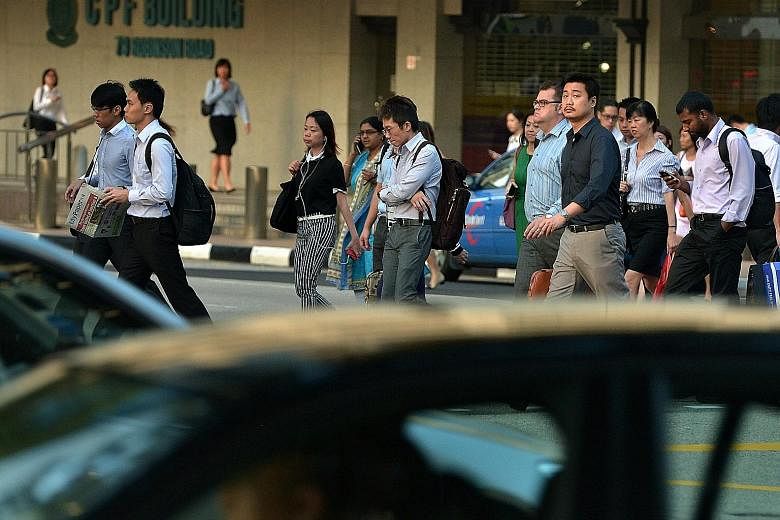Workers can expect pay rises of around 4 per cent next year - in line with gains this year - but a forecast uptick in inflation will take some of the shine off, according to a survey released yesterday.
It also found that, after inflation, workers here would get the 20th-highest salary increases in the world.
The poll of about 160 firms here, including large local companies and multinationals, noted that bosses are preparing to increase pay by around 4 per cent.
"This year, inflation is zero, so a 4 per cent increase in salaries does translate to a 4 per cent increase in a person's purchasing power," said Mr Lee Quane, director for Asia at human resources firm ECA International, which released the annual survey yesterday.
"In real terms, it's very good news for Singaporeans in 2015. Taking inflation into consideration, people are relatively well-off... and compared with developed places like Australia and Japan, the salary increase is higher in nominal terms."
He added in remarks to The Straits Times that the rates of salary increases this year and next year show that firms want to remain attractive to staff and potential employees.
"Given that inflation in Singapore is quite low, companies didn't or don't really need to provide a 4 per cent salary increase.
"But this is what workers expect. They expect their salary to increase at a relatively high rate in Singapore, which is also a product of the relatively low rate of un- employment levels, so companies really need to do what they can to retain workers," he said, noting that one way to do so is through salary increases.
However, inflation is expected to rise to 1.8 per cent next year - based on references from the International Monetary Fund - so the real impact of the 4 per cent wage rise will be 2.2 per cent, down from 4 per cent this year in real terms with no inflation.
The expected 2.2 per cent average pay rise next year would be lower than the estimated average of 3.1 per cent of the 17 Asian markets studied by ECA.
The biggest nominal pay rises in the region are forecast for Pakistan, where companies are expecting 10.5 per cent increases on average, but, once inflation is taken into account, Pakistan falls to third place on the regional and global lists.
The forecast for wage increases in Singapore was 4.5 per cent last year.
Mr Quane noted: "Although salaries have increased, the rate (at which) they've increased is less than what companies were anticipating last year."
He said the main reason could be the economy within the region. "There've been concerns about the slowdown in China, and that has a direct impact on Singapore.
"There's also been currency volatility in major locations in the region, such as Malaysia and Indonesia. These have an impact on companies that are based in Singapore because, very often, they have operations in or export to these markets."
Mr Quane noted that places like Malaysia and Hong Kong also had companies making higher forecasts last year but they were reined in by the economic slowdown.


